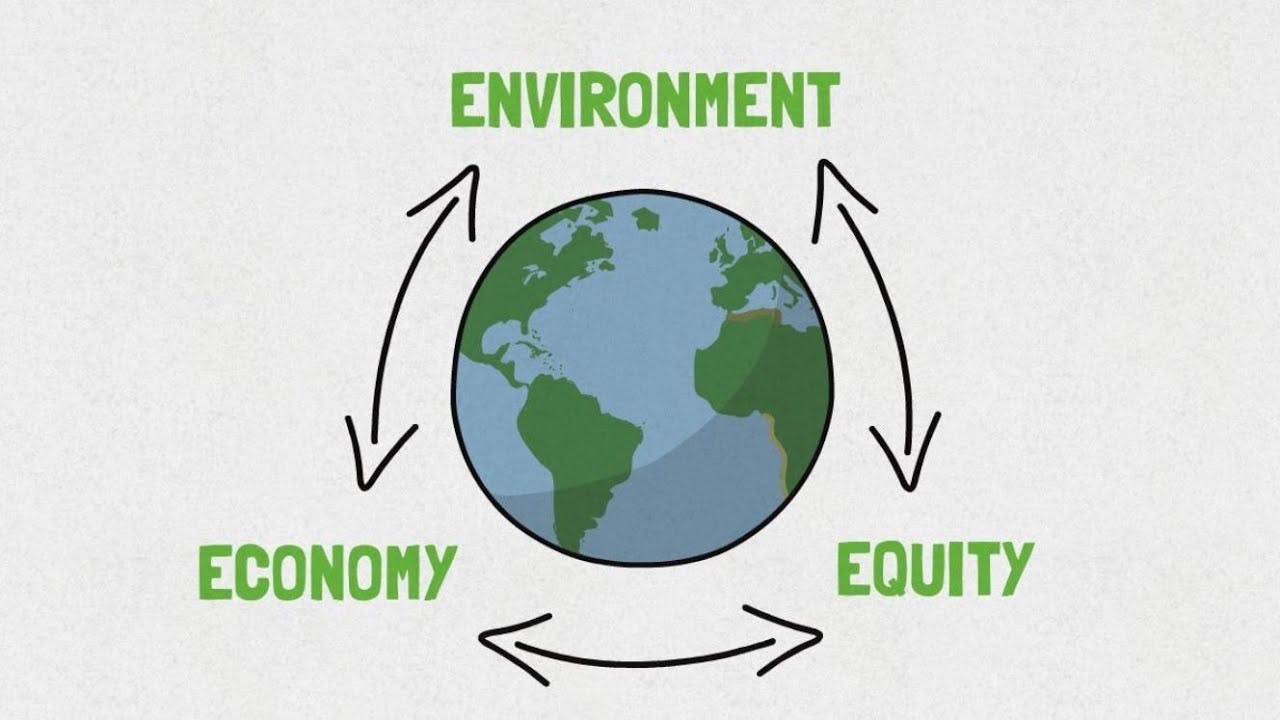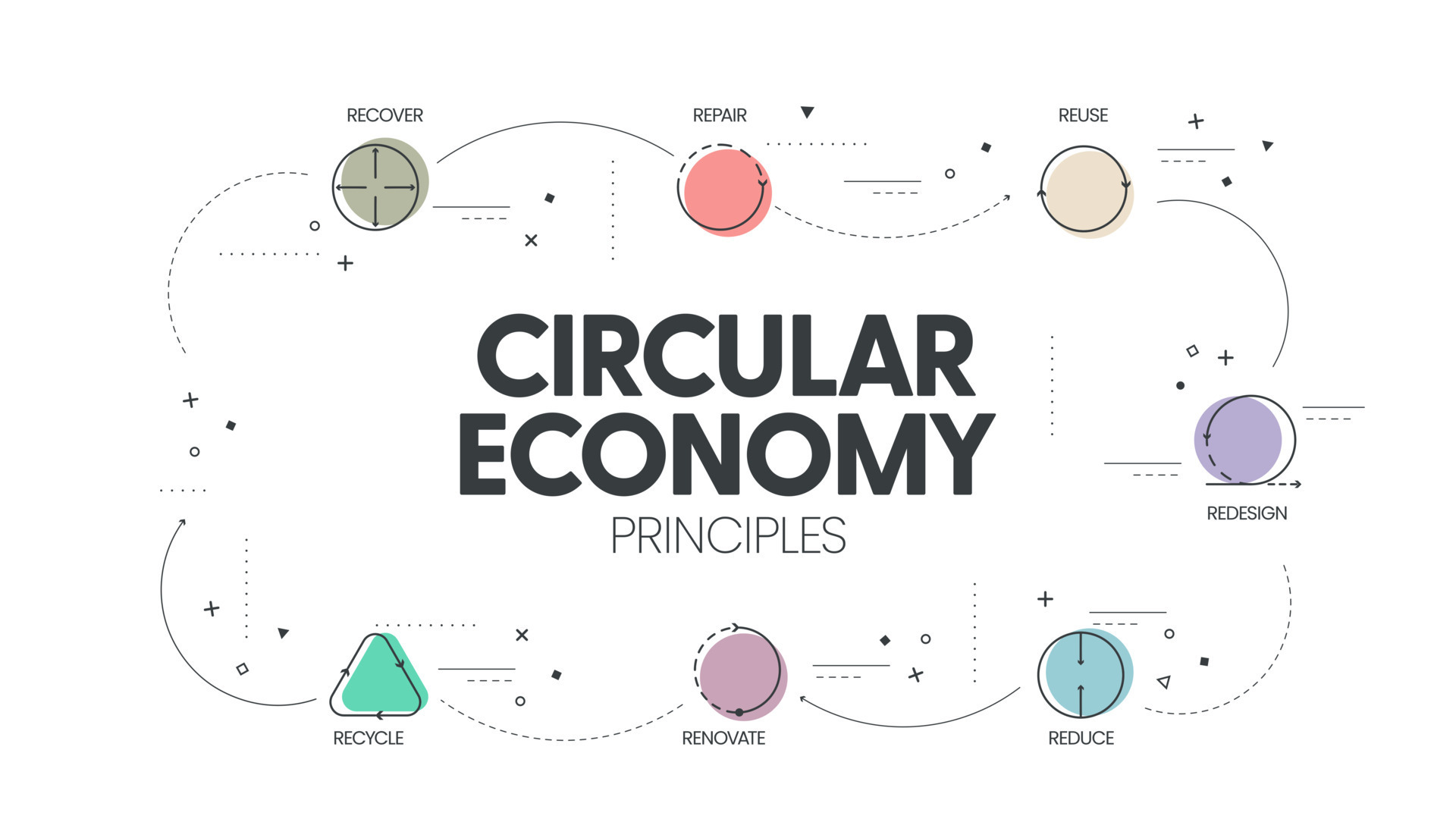Sustainability has rapidly become a paramount global concern.
In essence, it is a holistic approach that strives to meet the needs of the present population without compromising those of the future generations or causing environmental degradation. It comprises a broad range of facets, such as ecological, social, and economic factors.
It also aims to build a harmonious and long-lasting relationship between the natural environment and humanity.
In this article, we will discuss the key principles of environmental sustainability, explore their practical applications, and discuss their significance in shaping a sustainable future for the years to come.

Table of Contents
A Deep Dive Into the Principles of Environmental Sustainability and Their Impact

There are a few fundamental principles that highlight the concept of environmental sustainability. These principles are invaluable in helping individuals, businesses, and governmental organizations navigate their path to a more sustainable future.
Social Equity
Social equity is a basic principle of environmental sustainability dedicated to fostering a fair and inclusive environment where all individuals, regardless of their backgrounds, have the opportunity and freedom to meet their full potential.
Firstly, it strives to ensure that everyone has equitable access to resources such as clean water, healthy food, safe shelter, holistic healthcare, and education—several sustainable initiatives work towards eradicating poverty, hunger, and lack of access to basic services.
Social equity also involves including various communities in decision-making processes. When individuals are encouraged to participate in developing policies, programs, and projects that directly affect their lives, it naturally builds a sense of ownership and accountability.
Additionally, respecting and maintaining human rights is a crucial component of social equity. This includes upholding and preserving the rights of marginalized groups and ensuring fair treatment under the law.

Ecological Integrity
Ecological integrity is regarded as the cornerstone of environmental sustainability. It not only highlights the urgent need to preserve and restore natural systems, but it also ensures that they continue to operate and offer the necessary services that all life on earth depends on.
This principle talks about the need to preserve biodiversity. Biodiversity is essentially the variety of life on earth, which is crucial for balance and resilience in the ecosystem.
It includes all the diverse species, genetic material, and the ecosystem itself. By preserving biodiversity, we can ensure that ecosystems can be flexible with rapid shifts in conditions such as climate change or other invasive species.
Resource efficiency is another important factor in ecological integrity, which includes waste and resource minimizing, sustainable agriculture, and forestry and fishery practices. It encourages the creation of renewable energy sources, recycling, and circular economy models to decrease the burden on natural systems.
Acknowledging pollution caused by human activities is also necessary for ecological integrity. Pollution comes in many forms, the most common being air, water quality, soil contamination, and hazardous waste management. Sustainable practices aim to reduce emissions, treat pollutants, and clean contaminated regions to ensure healthy and flourishing ecosystems.
Intergenerational Responsibility
Intergenerational responsibility is the responsibility that we, as the current generation, must undertake to build a viable and thriving environment for our future generations.
This principle emphasizes the urgent need to maintain our natural resources and preserve an environment that is balanced and one that will be able to ensure the well-being of all the populations that are to follow us.
One facet of this principle involves legacy planning, which consists of making decisions that will positively influence the upcoming generations. This includes protecting natural habitats, minimizing climate change, and responsibly using our current resources to avoid depleting them.
Environmental awareness and education on environmental sustainability are crucial to ensuring intergenerational equity. Providing future generations with the knowledge and skills needed to smartly utilize and simultaneously maintain the environment is necessary for sustainability.
Governments and institutions also play a pivotal role in ensuring intergenerational equity by creating and implementing policies that foster sustainable practices. This involves policies on resource management, emissions, land use, and long-term planning for sustainable infrastructure.
Economic Efficiency
Economic efficiency is one of the principles of sustainability that aims to build a powerful and robust economy that yields prosperity without depleting resources or harming the environment. It strives to achieve stability in economic growth with long-lasting sustainability.

Circular economies aim to reduce, reuse, and recycle waste materials, which minimizes waste and resource consumption. By transitioning away from the traditional take-and-dispose system, economies can acquire greater resource efficiency and significantly decrease their environmental footprint.
Another way to ensure economic efficiency is to utilize sustainable technologies in various industries. Examples include renewable energy sources, energy-efficient technologies, and sustainable agricultural methods. To enable this, it is first necessary to invest in research and development to encourage innovation and drive economic growth while simultaneously minimizing environmental impact.
Sustainability also calls for evaluating the costs and benefits of actions acquired in the long term. This includes supervising not only the immediate gains but also the possible environmental and social influence.

Practical Application of Principles of Environmental Sustainability
Converting the principles of environmental sustainability into actions is the first step to a sustainable future. This requires a comprehensive approach that includes individual, corporate, and governmental responsibilities.
Individuals’ actions can significantly contribute to a sustainable environment by implementing eco-friendly habits in their daily lives. Examples include reducing waste, saving energy and water, opting for sustainable transport options, and supporting businesses that engage in ethical practices.
Businesses also play an important role in pushing sustainability forward. Considering the environmental impact of core business operations such as supply chain practices, resource consumption, waste reduction, and energy sourcing is a great way to contribute to ecological sustainability.
Governments also have a massive role in building an environment for sustainability. By implementing strict environmental regulations, offering incentives for sustainable practices, and investing in research and development, governments can propel the transition to a sustainable economy.
The Importance of Adhering to Principles of Environmental Sustainability
Adhering to the principles of sustainability is essential to ensuring that both current and future generations live in a resilient and equitable world.
There are several reasons to do so, with the primary ones being:
- To minimize climate change.
- To avoid biodiversity loss and preserve environmental quality.
- To prevent environmental resource scarcity.
- To promote economic development.
- To improve public health.
We are upholding the principles not just for the well-being of the environment but also as a necessity for a thriving and fair society. By adopting sustainability, we can build a world where the economy is prosperous, the society is just and fair, and a healthy environment where everything is in harmony.

Revolutionizing Your Business With the Principles of Environmental Sustainability

Although sustainability has become more of a business trend in recent years, it is crucial to note that it is still a strategic decision that should be made after thorough research with the primary aim of contributing to a healthier planet.
To effectively include sustainability principles in business practices, it is essential to come to it with a holistic approach. It could involve the following sustainable business practices:
- Analyzing the product life cycle to identify opportunities to reduce environmental impact.
- Implementing circular economy models that reuse, repair, and recycle to minimize waste and resource consumption.
- Collaborate with suppliers to ensure ethical and environmentally responsible practices throughout the entire chain.
- Shift to renewable energy sources to decrease carbon emissions and fossil fuel dependence.
- Adopting effective waste management systems to reduce packaging and increase recycling.
ALSO READ:
Conclusion
The concept of sustainability is not just a passing trend; it is crucial to building a flourishing planet for ourselves and future generations.
By understanding and upholding the core principles of environmental sustainability, individuals, businesses, and governments can fuel positive change. Sustainability requires strong efforts from social equity, ecological integrity, intergenerational responsibility, and economic efficiency.
By fostering a strong commitment to sustainability in our everyday lives, we can build a resilient, equitable and prosperous future for all.
It’s time to turn mere awareness into action and nurture a world where harmony between humanity and nature thrives!

FAQs
What are the four principal areas of sustainability?
Social justice, ecological integrity, intergenerational responsibility, and economic efficiency.
Why is environmental sustainability important for the future?
Environmental sustainability plays a crucial role in ensuring a good quality of life for both future and current generations since it ensures the preservation of our planet’s natural resources, protects ecosystems and reduces the influence of climate change.
How would you sustain the environment for future generations?
Sustaining the environment needs united economic activities to reduce consumption, use renewable energy, conserve water, protect biodiversity, promote sustainable transportation, support eco-friendly businesses, and spread environmental education.









